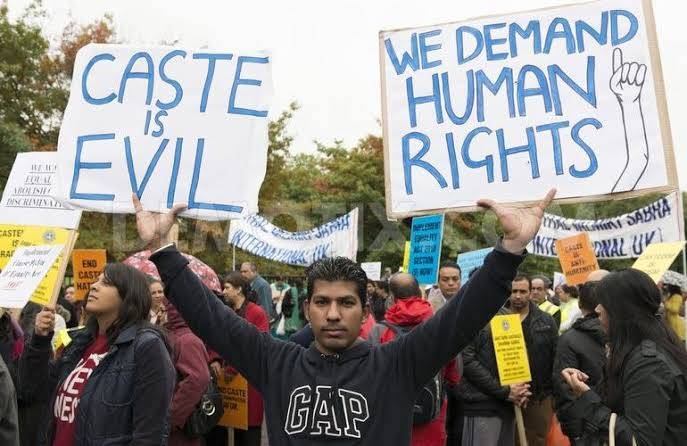
The former Professor of JNU, Sudha Pai, has written an article published in the wire.in titled ' Rise of Tejashwi Yadav signals significant change in Bihar politics '. In this article she states that caste alignments alone do not matter now in Indian politics, and factors like unemployment, price rise, etc. have also become important. She referred to Tejashwi Yadav's highlighting of these factors in his speeches during the Bihar election campaign.
I beg to differ from Prof Sudha Pai.
India remains a semi feudal country, and most people here still have backward feudal mindset, full of casteism and communalism. Indian elections in most states are still largely on the basis of caste and religion. Most voters even now only see caste and religion when they go to vote, and are wholly indifferent to poverty, unemployment, malnourishment, lack of proper healthcare, good education for the masses, price rise, and corruption etc.
The relevant factor in most Indian elections is what may be called the Caste Religion Alliance (CRA). Since no caste by itself has more than 10-12% of the state's population, to win an election one must get over 30% votes. An alliance of castes, and often a religious group like Muslims (except for the BJP, which does not get Muslim votes) is required for this purpose.
To give an example, after Independence in 1947, Congress used to sweep the elections in most states for decades, relying on the CRA of upper castes (about 16-17% in many North Indian states), Muslims (about 16% in UP and Bihar), and Scheduled Castes (about 20%). Later, SCs formed their own party (BSP), and after demolition of Babri masjid in December 1992 most Muslims left the Congress and joined SP in UP and RJD in Bihar, while upper castes inclined towards the BJP. So, Congress is left with very few votes in Bihar.
What has been happening is that the caste and religious alliances (CRA) sometimes change, but still the relevant factors in elections are caste and religion as opposed to issues like unemployment, price rise, lack of healthcare, corruption, etc. as Sudha Pai contends.
In Bihar elections, upper caste Hindus (about 16% of the population) voted for the NDA (which professes to represent Hindus) in addition to a large section of the non Yadav OBCs (who are about 40% of the population; aggrieved that under a Yadav Chief Minister, plum postings of officials usually go to Yadavs, representing about 12% of the population, while other OBCs are ignored).
The Mahagathbandhan got the 12% Yadav votes and perhaps, a few Other Backward Classes' (OBCs). If they had got the 17% Muslim votes, they may have won the elections, but Owaisi's AIMIM split the Muslim vote (AIMIM got 5 seats and made a dent in other constituencies). So Sudha Pai is totally mistaken in thinking that unemployment and other such factors matter in Indian elections. As long as India remains semi feudal, this situation will continue, and other socio-economic issues will remain irrelevant.
I beg to differ from Prof Sudha Pai.
India remains a semi feudal country, and most people here still have backward feudal mindset, full of casteism and communalism. Indian elections in most states are still largely on the basis of caste and religion. Most voters even now only see caste and religion when they go to vote, and are wholly indifferent to poverty, unemployment, malnourishment, lack of proper healthcare, good education for the masses, price rise, and corruption etc.
The relevant factor in most Indian elections is what may be called the Caste Religion Alliance (CRA). Since no caste by itself has more than 10-12% of the state's population, to win an election one must get over 30% votes. An alliance of castes, and often a religious group like Muslims (except for the BJP, which does not get Muslim votes) is required for this purpose.
To give an example, after Independence in 1947, Congress used to sweep the elections in most states for decades, relying on the CRA of upper castes (about 16-17% in many North Indian states), Muslims (about 16% in UP and Bihar), and Scheduled Castes (about 20%). Later, SCs formed their own party (BSP), and after demolition of Babri masjid in December 1992 most Muslims left the Congress and joined SP in UP and RJD in Bihar, while upper castes inclined towards the BJP. So, Congress is left with very few votes in Bihar.
What has been happening is that the caste and religious alliances (CRA) sometimes change, but still the relevant factors in elections are caste and religion as opposed to issues like unemployment, price rise, lack of healthcare, corruption, etc. as Sudha Pai contends.
In Bihar elections, upper caste Hindus (about 16% of the population) voted for the NDA (which professes to represent Hindus) in addition to a large section of the non Yadav OBCs (who are about 40% of the population; aggrieved that under a Yadav Chief Minister, plum postings of officials usually go to Yadavs, representing about 12% of the population, while other OBCs are ignored).
The Mahagathbandhan got the 12% Yadav votes and perhaps, a few Other Backward Classes' (OBCs). If they had got the 17% Muslim votes, they may have won the elections, but Owaisi's AIMIM split the Muslim vote (AIMIM got 5 seats and made a dent in other constituencies). So Sudha Pai is totally mistaken in thinking that unemployment and other such factors matter in Indian elections. As long as India remains semi feudal, this situation will continue, and other socio-economic issues will remain irrelevant.
